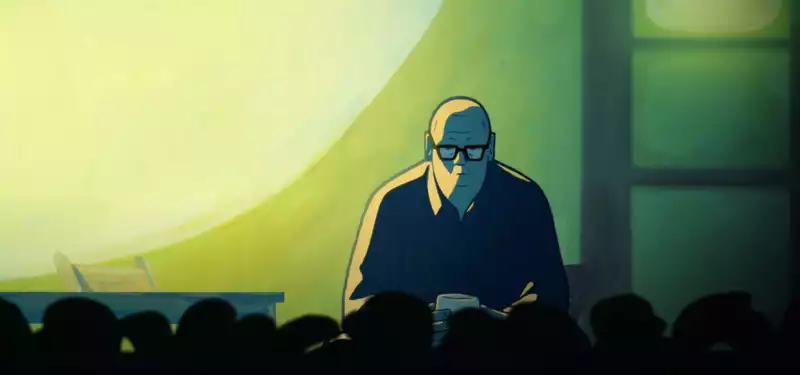Nov 3, 2023
2024 Oscar Nominees for Best Short Film: "Teacups," directed by Alec Green and Finbar Watson
Welcome to Cartoon Brew's spotlight series highlighting animated short films that have qualified for the 2024 Academy Awards. There are several ways for a film to qualify for an award. In this edition, we will focus on films that have won an Oscar-eligible award at a festival that is eligible for the Academy Awards.
Today's short film is "Teacups," written and directed by Alec Green and Finbar Watson. The film won Best in Show at Spark Animation and qualified for an Academy Award.
This nonfiction short is the story of Don Ritchie, who for nearly 50 years approached people contemplating suicide on the edge of a cliff just 100 feet from his home.
Cartoon Brew: This short story is told from Don Ritchie's first-person perspective. How was his dialogue written and is his family involved? Alec Green: I interviewed Don's family thoroughly before I wrote the script. They were wonderful people and we heard story after story about Don. The premise itself is fascinating, of course, but getting to know Don as a person gave us a structure for the story we wanted to tell. Once we had that image, writing his dialogue became instinctive. Finbar and I were careful not to make Don's dialogue overly poetic. Don's words had to have emotional authenticity, even if that meant incorporating Australian slang. Nor was I interested in over-explaining. We wrote the voice-over for "Teacup" from the perspective of the deceased Don telling the story of his life. Writing subtext into the dialogue was a fun challenge for both of us.
What was it about the story and concept that attracted you to direct this film? Don Ritchie sold insurance. He also convinced hundreds of suicidal people to step back from the cliff. We were captured by the simple idea that a small act of kindness by an ordinary person could change thousands of lives. We started Teacup by researching Don's life and mental health. The more we learned, the more determined we became to do justice to Don's story. For example, nearly 50,000 people die by suicide each year in the United States. When you consider this statistic and how many people are contemplating suicide in our cities and on our streets, you can see how important stories like Don's are. In Australia, Don's story is somewhat of an old tale. Many of us have heard of him, but few know what he did. Don lived a life worth remembering. Hopefully, the teacup will play a part in keeping his name in our hearts.
What did you learn about the production aspect, the filmmaking aspect, the creative aspect, or the subject matter through the experience of making this film? When we completed the film and had our first screening, strangers approached the team and told us how they personally connected with the story. We continued to receive similar messages overseas and in Australia. We have been watching the film for a long time and have felt its impact long after the credits have rolled. Being part of a team that produces films that have a similar impact on audiences, no matter how big or small that impact is, reminded us why we love films and why they are worth making. In the future, when we are buried between our day jobs and production management, it won't be hard to remember why we are doing it.
Alan Holly, Art/Animation Director: It was really important to get the tone right because of the nature of this subject matter and fact-based story. Our approach was to keep it simple and uncluttered, keep the characters minimal and preferably attractive, and convey the emotional story as atmospherically and directly as possible through the use of large, broad swaths of tactile, paint-based colors. In many ways, there was a natural progression from our previous projects to incorporate more paint and pencil along with digital elements. All of the backgrounds were painted in gouache by Mouilleann Mills, and the effects animation was done in pencil by Deezer Kirby Jay. Alec and Finbar had a very clear vision of the mood of the film, which came through well in the script and references.
.



Post your comment